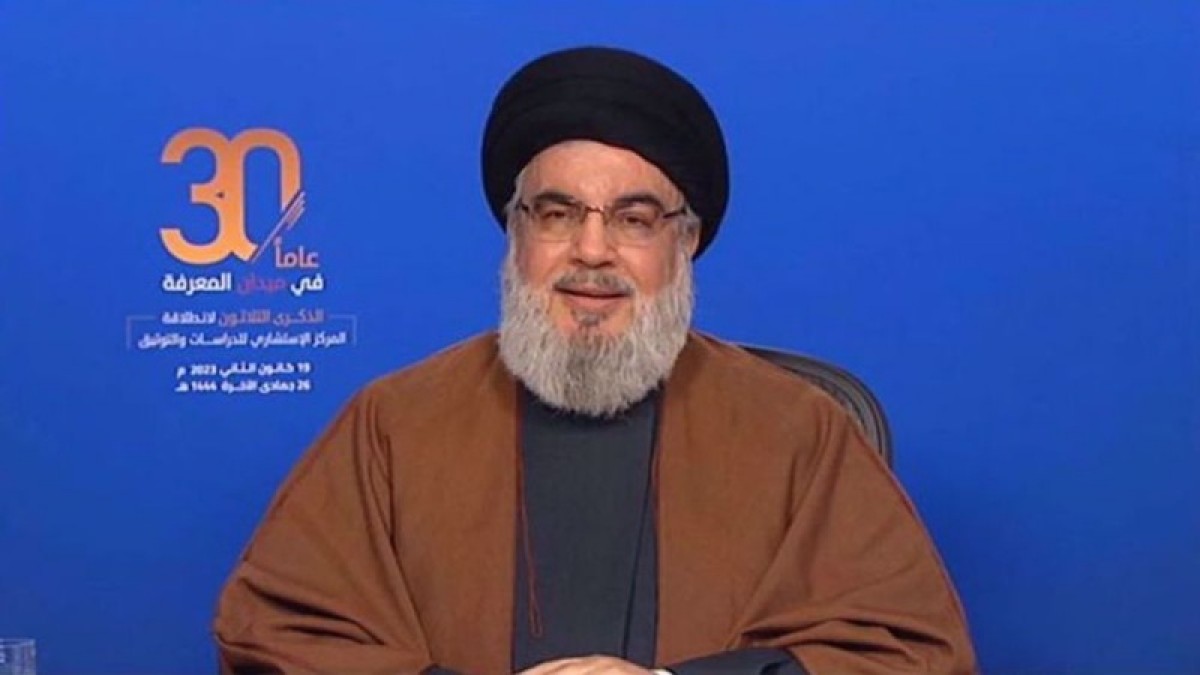 136
136
The secretary-general of the Lebanese resistance movement Hezbollah said the United States was pursuing a policy of maximum pressure and sanctions against its opponents in the Middle East. He described Washington as primarily responsible for the worsening of the financial crisis in the Arab country.
“The United States is pursuing the policy of maximum pressure and economic sanctions against the countries and nations that are part of the Axis of Resistance, such as the Islamic Republic of Iran, Syria and Yemen. The financial problems of these nations are due to the fact that they do not want to bow to Washington’s dictates,” said Sayyed Hassan Nasrallah on Thursday evening at a celebration in the Lebanese capital Beirut. He added: “It is unfortunate that some people in Lebanon deny the existence of an economic blockade. They believe that a blockade of Lebanon would only take place if a battleship were moored off the country’s coast. Yet the policies and actions of the U.S. governments toward our country are testimony to such a fact.”
Noting that Washington is behind Lebanon’s decades-long economic woes, Nasrallah added that the US impedes financial aid to the country in one way or another and does not allow any state to offer assistance to Beirut to meet its basic needs support. “No one would argue that Lebanon is facing an unprecedented economic crisis. Our country is no exception, as many countries around the world are now on the brink of collapse. Despite some evil attempts to spread hopelessness, we must not allow ourselves to be driven to despair by the existing financial problems,” stressed the Hezbollah chief.
He pointed out: “It is absolutely unacceptable to remain in a state of confusion as has been the case in the past. Some competent authority should take the initiative somewhere to develop a vision aimed at managing the current economic turmoil. Accordingly, detailed plans and programs to solve the problem can be made.” “Corruption is a long-standing problem in Lebanon. We would not have encountered the status quo if all the political groups had contributed, developed new ideas and taken on their own administrative tasks,” said Nasrallah. The Hezbollah leader cited lack of production, blackmail, lack of sustainable development, political recklessness and rivalry between political groups as some of the main reasons behind the financial crisis in Lebanon.
“We must build an economy that ensures food security and is not dependent on foreign aid and assistance,” he stressed. Elsewhere in his remarks, Nasrallah said: “It is a misconception that the region is headed towards making peace with Israel and embracing the regime. Such a misconception has driven us into the current situation.” “Anyone who wants to formulate new economic policies [in Lebanon] should abandon the false illusion that regional states are about to make peace with Israel and that the so-called two-state solution is within reach, especially as one corrupt and terrorist Israeli government is now in place.”
If there were peace with Israel, “there would definitely be more tension in the region. There would be neither agreements nor peace scenes. Crises would be rampant throughout the region,” Nasrallah warned. Elsewhere in his remarks, Nasrallah called for the election of “a courageous [Lebanese] president who is willing to make sacrifices.” “We want a president elected, a government formed and the country saved,” the Hezbollah leader said.
“We want a brave president who is willing to make sacrifices and doesn’t care about American threats. There are such examples and we need to look for a government of this type and ministers of this type,” the Hezbollah chief underscored. The comments come at a time when Lebanon’s parliament failed to elect a new president for the 11th time on Thursday, extending a government vacuum created amid a deepening economic crisis.
Comment
Post a comment for this article